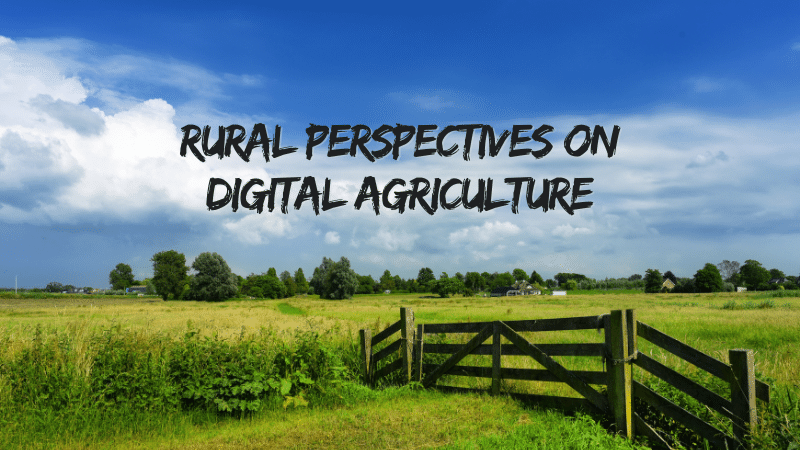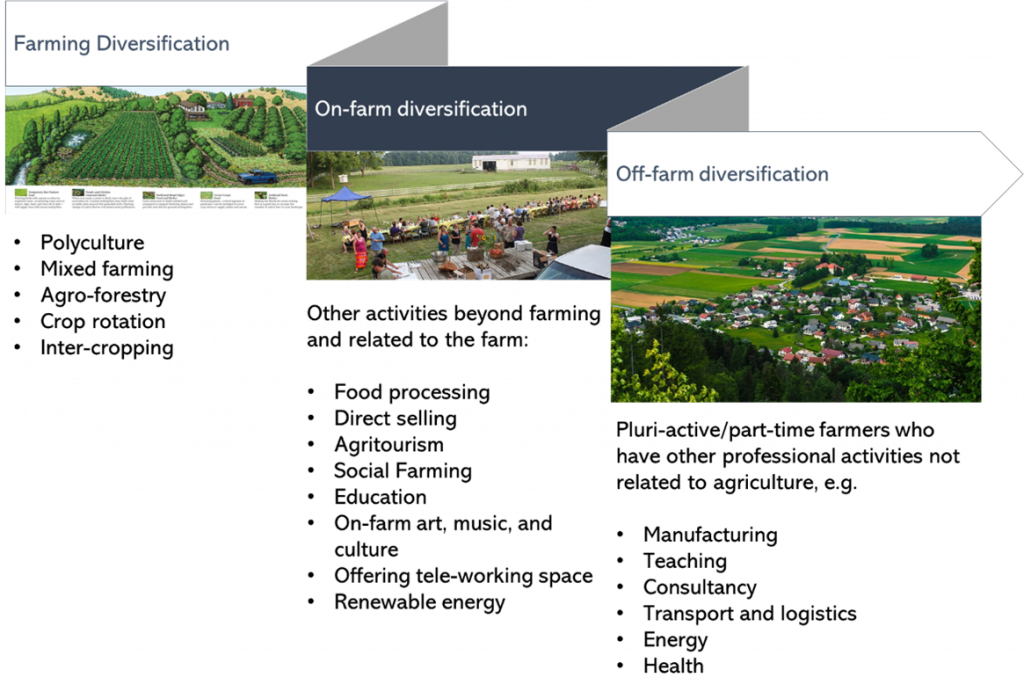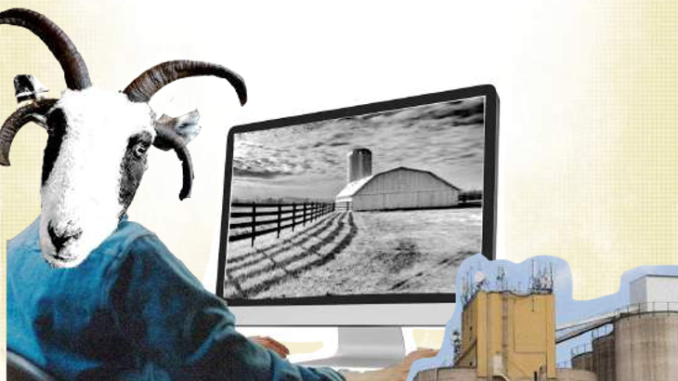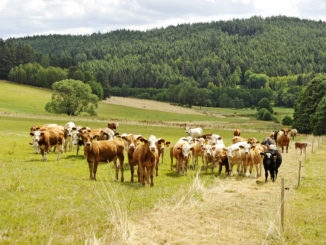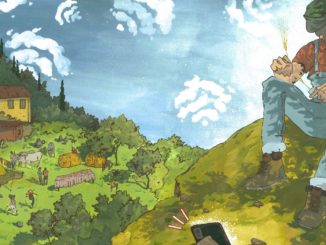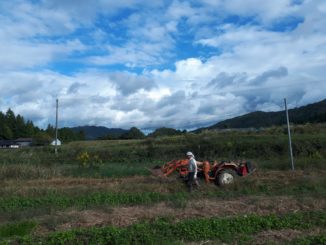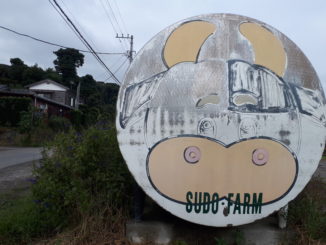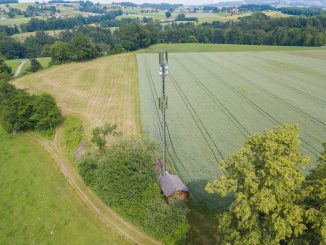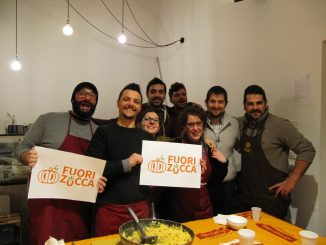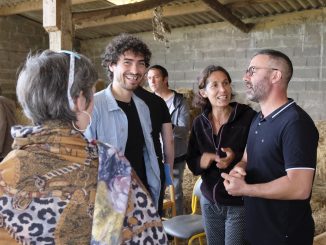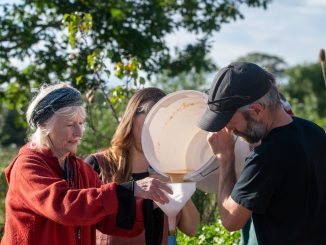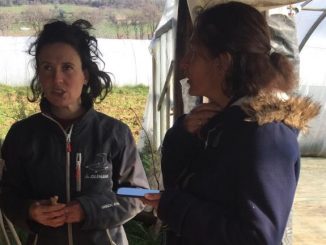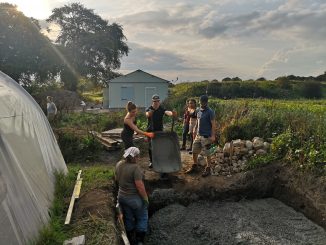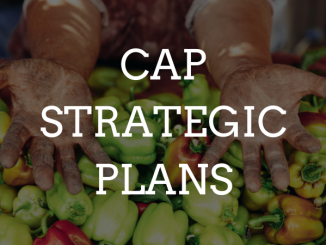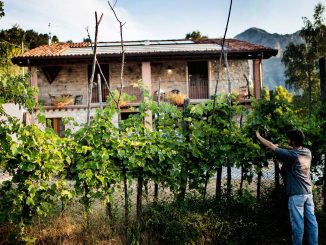ARC2020 is supporting a research project on ‘Rural Perspectives on Digital Agriculture’, led by PhD Matteo Metta. The project aims to study, and to connect, farmers, advisors, policies, nature conservationists, and critical considerations around digitalisation from the perspective of a diversified, integrated, and multifunctional agriculture.
Background
Digitalisation is increasingly expanding in agriculture and rural life. Precision or smart farming technologies receive growing attention and support, based on the assumption that these will increase production efficiency while meeting multiple sustainability goals.
For decades, digital innovations have been embedded in a productivist paradigm, which sees agriculture primarily as farming and producing goods, like food and fiber. Within this paradigm, digitalisation has garnered enthusiastic support or strong opposition.
On one hand, proponents expect digitalisation to make agricultural production more efficient and sustainable by modernising farming methods or regulating market externalities (e.g. carbon farming). On the other, opponents are concerned with how digitalisation can exacerbate real threats to sustainable agriculture, like corporate farming, path dependency, worker displacement, or the alienation of agriculture from rural life.
In the debate about the future of digital agriculture, little attention has been paid on the non-productive aspects of agriculture, like governing common natural resources such as biodiversity and landscapes, or integrating farmers in the social fabric of rural areas.
By limiting its conceptual scope to the production side of agriculture, digitalisation can overlook or even jeopardise a whole set of socio-economic activities and ecological functionalities performed by farmers, at farm, community, or landscape level.
In this PhD, we look at digital agriculture from a perspective that goes beyond farming, with a focus on on-farm diversification activities, like food processing, direct selling, agritourism, educational activities, or social farming. We address broad questions on the threat or valuable support digitalisation carries for these farmers, and how it responds to their specific needs.
While we challenge the assumed normativity and values behind certain trajectories of digital agriculture, we also look at ways to study and steer it from the perspective of a diversified agriculture and collective management of public goods, like biodiversity, soil, air and water quality, and social capital.
From and beyond farming: rural perspectives on digitalisation
This research project will be coordinated by Matteo Metta (PhD candidate at University of Pisa and Gent) with the support of ARC2020. The overarching aim is to create a knowledge base and build a network of committed people who wants to steer digitalisation policies and practices towards a multifunctional agriculture and rural development. The main focus is about on-farm diversification activities that go from and beyond farming.
Here is how we will do it.
From practice…
Feet on the ground (if COVID allows!). We want to talk with farmers, visit their farms, or share their stories, as well as those of farm advisors, authorities, or networks that are specialised or dealing with on-farm diversification activities.
Wonder what on-farm diversification activities are? Below is a figure to clarify its meaning and difference with other potentially related concepts (e.g. farming diversification or off-farm diversification).
Digitalisation as a concept is as it were, spreading fast like a virus. Cloud computing, e-governance platforms, apps, team collaboration software, geo-mapping and integrated soil sensors are just some examples of digital elements, together with technical skills and infrastructure (e.g. internet connectivity).
In this research, webinar series and interviews will be organised to jointly map and explore how farmers and actors are assembling and dis-assembling their skills, knowledge, structure, businesses, or relationships around new digital elements.
Ultimately, mapping the presence of digitalisation (technologies, skills, infrastructure) within a farm, community, or network will serve to stimulate in-depth reflections on why digitalisation has become more present, and what consequences can be identified from a rural perspective, such as capturing higher shares of added value, nurturing community cohesion and resilience, protecting the environment.
To policy…
Because public policies can shape digitalisation in agriculture (and vice-versa), we want to look at legislation, investments in research and innovation, and other non-regulatory initiatives that can create an enabling framework to diversify agriculture in the era of digitalisation.
Are the CAP Strategic Plans creating synergies with other policies to support on-farm diversification, or does it support digitalisation trajectories prone to exacerbate ongoing issues, like intensification, land concentration, commodification, and objectification of farmers, nature, animals?
Will the CAP networks and strategic plans orient their efforts and interventions towards a diversified agriculture, namely through the measures supporting trainings and capacity building, farm advisory services, cooperation, investments, result-based AECMs?
Are the resources from Horizon-2020 and Horizon Europe going to create digital ecosystems tailored to the specific needs of rural areas, and fulfill the conditions to upscale and increase the widespread use of digital tools (e.g. platforms scalability, skills, flexibility)?
How do the initiatives of the European Data Strategy, including the funding from the European Digital Programme or the provisions of Data Governance Act (DGA), stimulate fairer data marketplaces, new business models, and social innovation for agriculture and rural areas? How will new data standards for interoperability integrate the multiple services and actors connected to on-farm diversification (e.g. restaurants, tour insurances, schools, booking platforms, public authorities, etc.)?
If you are interested, you are welcome to get in touch with Matteo (matteo.metta@arc2020.eu or matteo.metta@phd.unipi.it)

